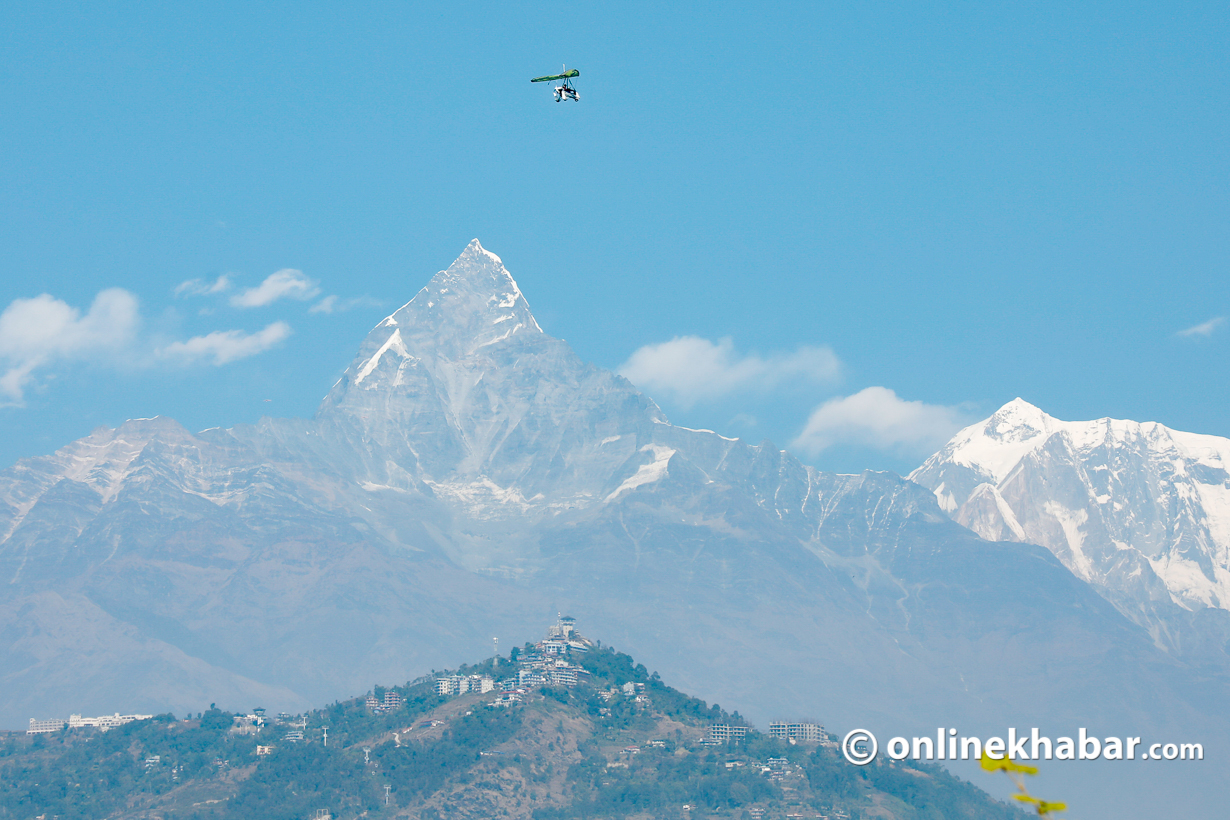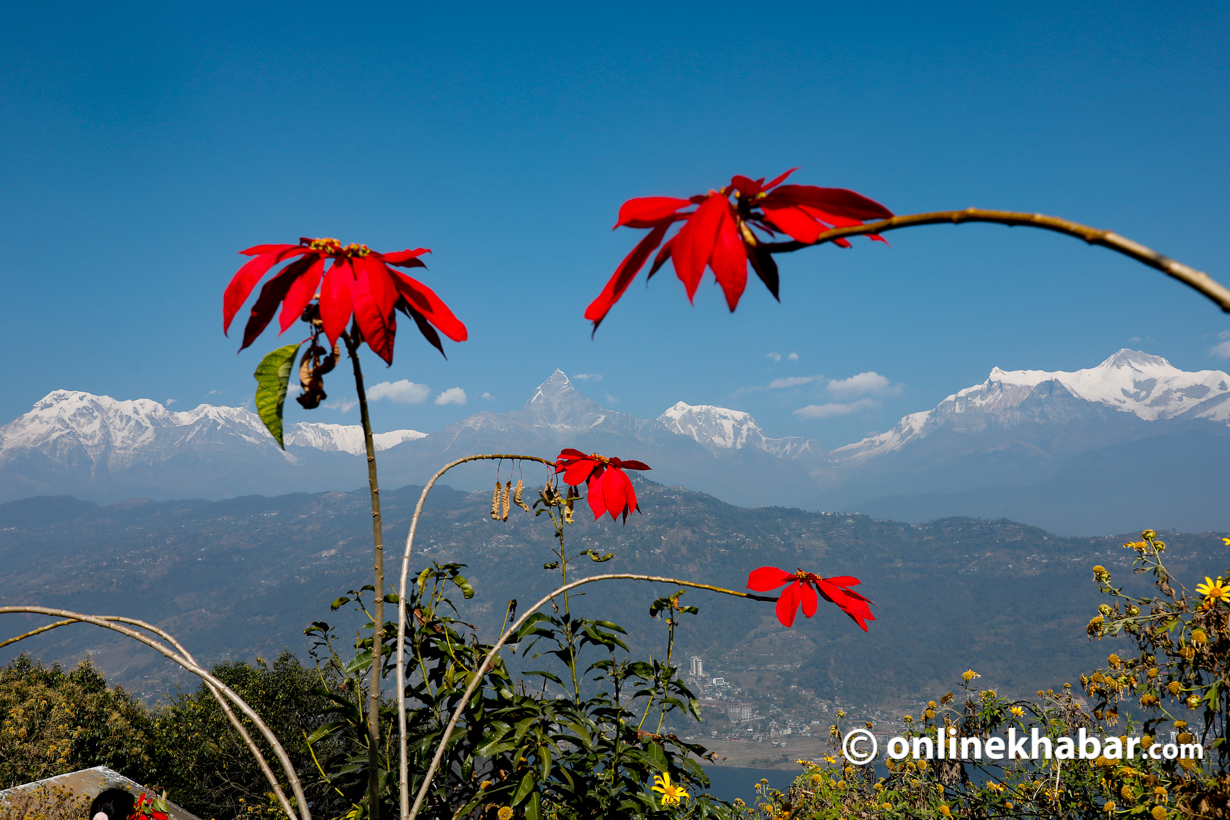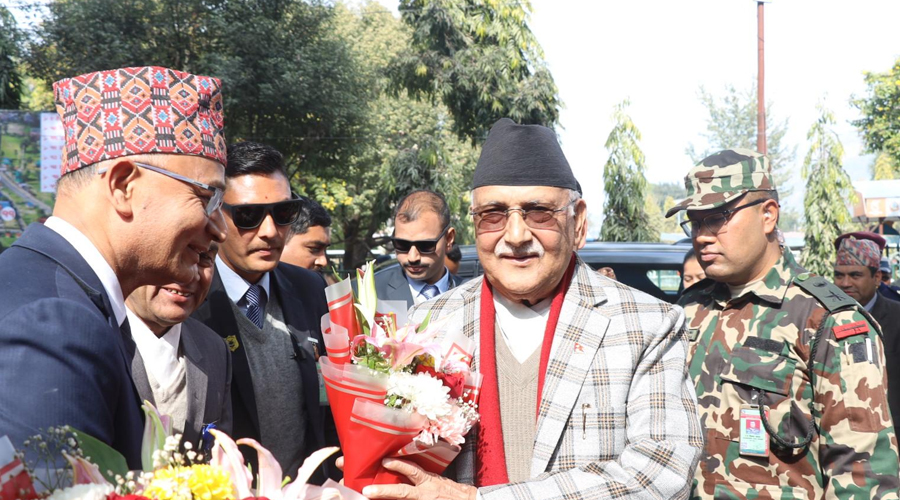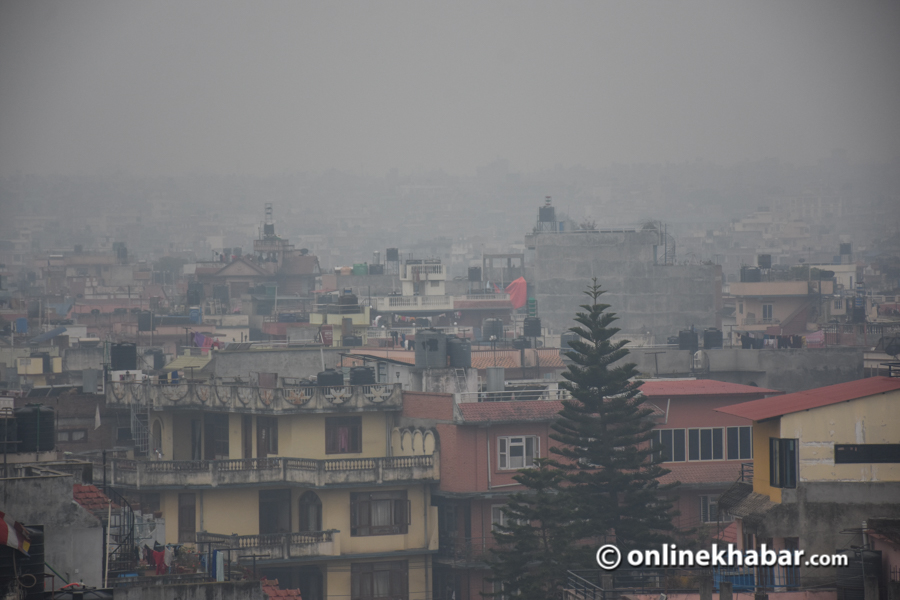
The proposed Kotihom event by Balayogeshwar Vijay Krishna Murti, also known as Bijay Bhandari, has stirred significant controversy even before its commencement. The Manav Sewa Foundation, led by Bhandari, has come under scrutiny for cutting down sacred trees in Pokhara’s historic Chautara area under the pretext of preparing for the religious event. The issue has sparked criticism against both the foundation and the Pokhara Metropolitan City, which is responsible for environmental conservation.
The Kotihom, scheduled for April, has led to a standoff between the Pokhara Metropolitan Office and the foundation. The debate over whether the event should proceed has drawn mixed reactions, with opposition and support coming from various quarters.
Pokhara Mayor opposes kotihom at Phewa lake
Pokhara Mayor Dhanraj Acharya has categorically stated that the Kotihom event cannot be held along the Phewa Lake area. The Pokhara Metropolitan City’s executive meeting has officially written to the Nepal Trust, requesting that the land leased for the event not be provided. Following the decision, the metropolitan office has also notified the Division Forest Office to take legal action against those responsible for cutting down banyan, peepal, and simal trees.
Despite the opposition, the foundation had already paid Rs 1.15 million in leasing fees to Nepal Trust for the event. In response to the mayor’s directive, Bijay Bhandari held a press conference on Sunday morning, where he insisted that the Kotihom would go ahead as planned.
Krishna Murti’s defiant stance and controversial remarks

At the press conference, Bhandari not only reaffirmed his determination to proceed with the event but also issued a provocative statement, warning that no one could stop the Kotihom.
“This Yagna cannot be stopped under any circumstances,” he declared. “I am telling you clearly: nobody can stop this. Balayogeshwar will not leave without completing the Yagna. This event will be held at the designated place and time, in a grand and majestic manner.”
Bhandari went further, making an even more controversial remark, suggesting a willingness to resort to extreme measures to ensure the event takes place.
“We have walked this path before, risking our lives for Sanatan Dharma. If necessary, we will pay any price for it,” he asserted. “If it takes committing adharma for the sake of dharma, then let it be known that Balayogeshwar Bijay Krishna Murti is prepared.”
He later attempted to clarify this statement, arguing that resisting those who prevent religious activities should not be considered unlawful.
Past allegations against Bhandari
Bhandari’s controversial past has added fuel to the current debate. He has faced criminal charges, including allegations of fraud related to foreign employment and promises of visas to the United States. He has been arrested five times on these charges, though he claims that all accusations were false and that he has never been convicted.
“There is no criminal record against me in any court of law,” he insisted, producing a document from the police that stated he had no record of criminal activity. “If anyone finds evidence to the contrary, I will leave the Kotihom and walk away.”
Similarly, Bhandari attempted to defend himself against allegations that a previous Kotihom event in Pashupatinath resulted in financial losses. While acknowledging a Rs. 7.5 million deficit, he asserted that the shortfall was due to insufficient funding for the event’s expenses.
Environmental concerns over tree cutting

The controversy intensified when historic trees in Pokhara’s Chautara area were cut down, allegedly to make way for the Kotihom event. This act was met with public outrage, prompting Mayor Acharya to order the seizure of the logs and initiate legal action.
The Manav Sewa Foundation, however, countered the accusations, claiming that Pokhara Metropolitan City had itself cut the trees and later confiscated the logs in the name of law enforcement. “The logs were stored in the Shantiban Fire Station, but the metropolitan officials forcefully took them,” the foundation stated.
Despite the backlash, Bhandari admitted that the cutting of tree branches may have gone beyond what was permitted, but he maintained that any violation was unintentional. He added that he was willing to face legal consequences if necessary.
Mayor Acharya’s firm stance
Mayor Acharya has remained steadfast in his opposition to holding the Kotihom at Phewa Lake. He reiterated that long-duration religious events require proper approval and cannot proceed without local government consent.
“If they wish to hold the event in another religious or open area, and if the local residents agree, the matter will be reviewed by our environmental committee and law enforcement units,” Acharya stated. “However, nobody should assume they can bypass the system and proceed without permission.”
The mayor also raised concerns about hidden agendas behind the event, stating that he was not convinced everything was as simple as it appeared. “There’s more to this than meets the eye,” he said. “A religious event should be transparent and open to all, not shrouded in controversy.”
Concerns over religious funding and transparency
Bhandari has claimed that funds raised for the event will be used for local religious causes, including supporting the Manav Sewa Ashram. However, critics argue that such claims lack transparency and accountability.
The cost of organising the Kotihom is estimated at Rs. 250 million, with volunteers already staying in several hotels in Pokhara. Bhandari stated that 25 hotels have been booked for participants. Critics, however, question the financial viability and sources of funding for such an extravagant event.
Authorities Caution against provocative statements
Mayor Acharya has warned against irresponsible and provocative statements that could incite unrest. “Saying ‘we are ready to do anything, even commit adharma for dharma’ is against constitutional laws,” he said. “We request the concerned individuals to refrain from making such statements.”
He also noted that any major public event requires official authorisation, and those attempting to bypass regulations will face consequences.
With the Kotihom dispute escalating, the Pokhara Metropolitan City remains firm in its stance, while Bijay Bhandari and his supporters insist on moving forward with the event. The issue has now become a test case for governance, environmental conservation, and the regulation of large-scale religious events in Nepal.
As tensions rise, the final decision on whether the Kotihom will proceed remains uncertain. However, one thing is clear: Pokhara’s leadership and its citizens are closely watching how this controversy unfolds.
























